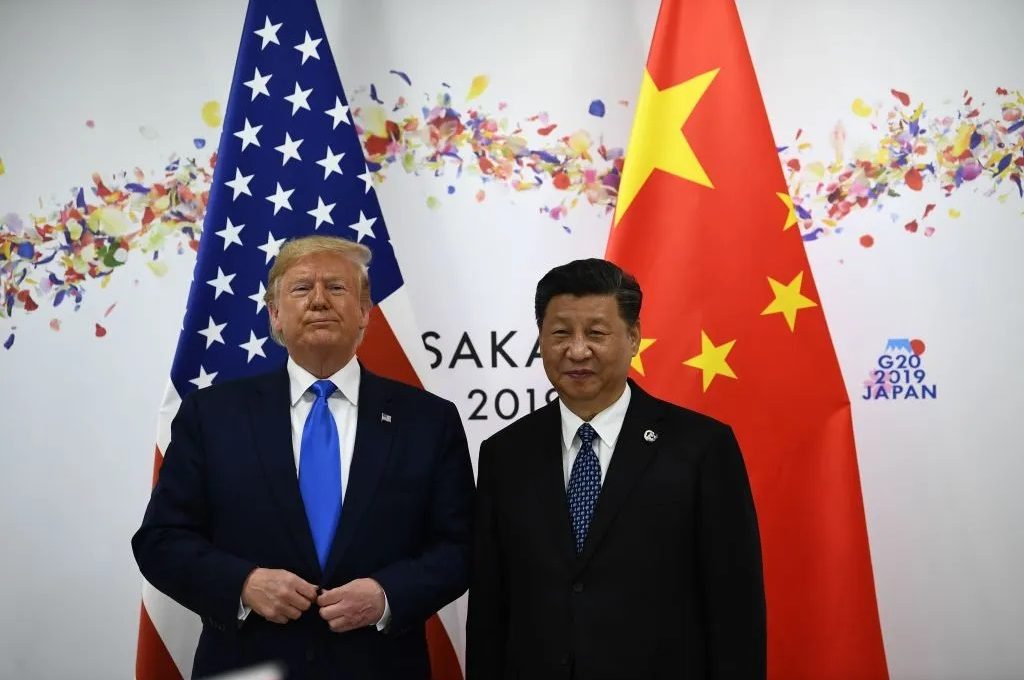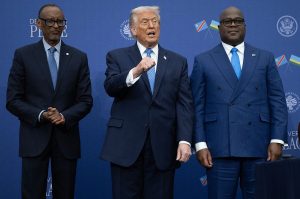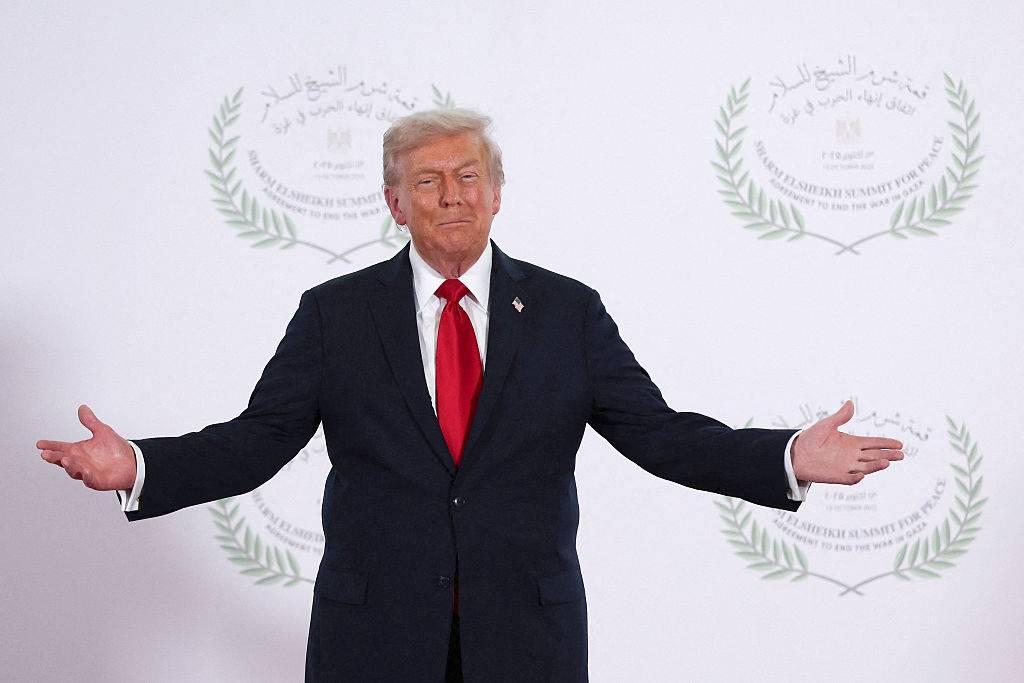The prospect of a second Donald Trump administration has put the fear of God into America’s allies around the world. The biggest question being raised is: would the United States heave up the drawbridge and let others do the dirty work to keep the planet safe from global war?
Comments made by Trump seem to suggest he still has no love for NATO, that Taiwan should fend for itself if attacked by mainland China, and that Ukraine should give up the territory it has lost to the Russian invaders in return for a ceasefire and forgo any ambition to join the western alliance.
On the face of it, even if elements of this Trumpian foreign policy vision were to be implemented, it would represent one of the starkest changes in America’s relations with allies and partners in modern times.
Trump wants more money for the burden of protecting Asian allies from aggression by China and North Korea
The reality is probably not quite so bleak. Trump may have a history of unpredictability and unexpected surprises. One has only to remember his extraordinary, albeit abortive, charm offensive with North Korea’s Kim Jong Un.
However, the one topic where he demonstrated implacable consistency was his demand that allies “play fair” and spend significantly more money on defense. Although during his term in office between 2017 and 2021 he was thinking principally about NATO, he is now expanding his mantra to embrace Taiwan, South Korea, Japan and anywhere else where American taxpayer dollars are being spent to deter aggression by regional adversaries.
Taiwan is a case in point. In an interview with Bloomberg, Trump said it was time Taiwan spent more on defending itself from the rising threat posed by China’s People’s Liberation Army (PLA), and that Taipei should reimburse the US for the huge cost of maintaining a deterrent presence in the region.
When he pointed out that Taiwan was 6,500 miles away from the US and only sixty-eight miles from China, some observers interpreted this as a sign that under a Trump administration, the US would not necessarily jump to the island’s defense if the PLA launched an invasion.
Under President Biden, the long-held policy of strategic ambiguity on what the US might do if China tried to occupy Taiwan has become more strategic and less ambiguous. Biden has stated on several occasions when asked that he would go to Taiwan’s aid under such circumstances, presumably with aircraft carriers, anti-ship missiles and the US Marine Corps in mind.
Trump has promised no such intervention. But judging by his past hawkish approach to China on trade and the PLA’s expansionist endeavors in the South China Sea, it would seem unlikely that a Trump administration would allow Beijing to get away with seizing, or trying to seize, Taiwan. It would also upset the Republican Party whose hierarchy has always been staunch supporters of Taiwan and critical of Beijing’s hegemonic ambitions in the region.
Senator Marco Rubio who was on the short list to be Trump’s running-mate and has considerable experience as a senior member of the Senate’s foreign relations committee, advised reporters on the sidelines of the Republican National Convention in Milwaukee that Trump would continue to back Taiwan, as he did during his time in office.
So, it’s down to money, not whether Trump would send for the Marines. If he were to authorize military action to defend Taiwan against the PLA, he would presumably expect Taiwan to pay for or contribute towards the cost.
Trump has sent out the same message to South Korea and Japan, where the US currently has a combined total of around 82,000 troops stationed. Trump wants more money for the burden of protecting these allies from aggression by China and North Korea.
This argument of greater burden-sharing comes at an even greater price for Europe, where, since Russia’s invasion of Ukraine in February 2022, the US has increased its troop presence to more than 100,000, and is planning to deploy land-based Tomahawk and hypersonic missiles to Germany to defend NATO allies and deter further Russian aggression.
Much was made of Trump’s threat to pull the US out of NATO when he became president in January 2021. But the alarm was short-lived. He banged on about the NATO members who had failed to spend the required 2 percent on defense and said it was unfair that America, a military superpower, should have to spend so much more than anyone else in the alliance — in fact, a lot more than the rest of the alliance put together.
There are still eight NATO countries who have failed to reach the 2 percent target, including Canada, Italy and Spain. They must expect a hard time from a second Trump administration. What’s more, a re-elected Trump might well use the first NATO summit under his leadership to push for 3.5 percent of GDP across the board.
This is what the US spends and a significant proportion of it is devoted to defending Europe. If Trump’s pledge to end the war in Ukraine within twenty-four hours of taking office failed to materialize, no doubt he would demand Europe pay out a much larger slice of the burden to stop Russia from seizing more of its neighbor’s sovereign territory.
This article was originally published on The Spectator’s UK website.


























Leave a Reply